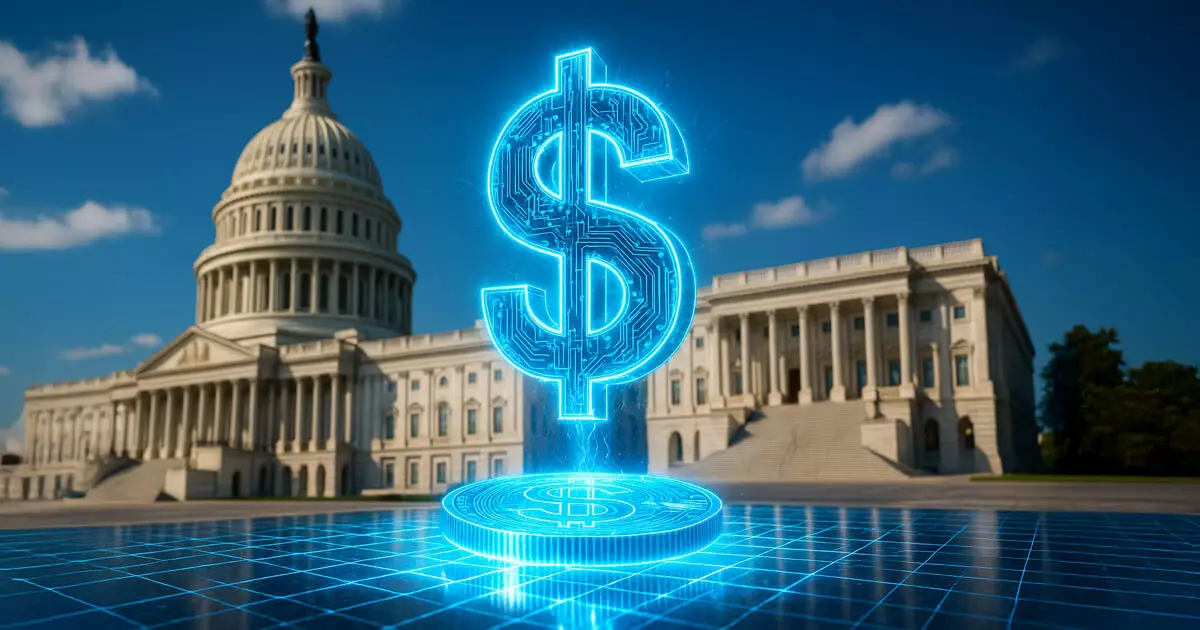In the whirlwind of the ever-evolving cryptocurrency landscape, Senate Republicans have taken a significant step by advancing the GENIUS (Guiding and Establishing National Innovation for U.S. Stablecoins) Act. This legislative push is more than just a measure to regulate stablecoins; it represents an urgent need to set forth a comprehensive framework that governs digital assets, ensuring the United States does not lag behind in the global financial innovation race. With this bill on the table, the stakes are exceptionally high as the Senate prepares for a vote that could reshape America’s economic future.
Bipartisan Support: A Rare Yet Crucial Alliance
What makes the GENIUS Act noteworthy is its bipartisan backing; it passed the Senate Banking Committee with an enviable vote of 18-6. Senators like Bill Hagerty, Cynthia Lummis, and Tim Scott champion this legislation, arguing that it is vital for preserving the U.S. dollar’s dominance while bringing a semblance of order to the burgeoning crypto marketplace. It is not often that we see minds from both sides of the aisle converge on economic issues, and this act may just be the bridge that fixes the partisan divide on financial regulation. Yet, while this coalition is promising, the path to enactment will necessitate at least seven votes from Democratic members to overcome the filibuster.
The Stakes: Clarity vs. Chaos
Running parallel to this debate is the massive growth of stablecoins, which have spiked to a staggering $241 billion in capitalization. With industry leaders like Tether and Circle controlling a significant portion of this market, the call for legal clarity is more pressing than ever. Proponents argue that a regulatory framework could bolster the reliability of dollar-linked tokens, ensuring they remain a backbone of global crypto markets. They emphasize that proper regulation serves to prevent instability while protecting American consumers from the volatility that has characterized the cryptocurrency space.
However, opponents of the bill, including influential figures like Senator Elizabeth Warren, flag concerns that the GENIUS Act may provide the green light for tech giants and financial behemoths to issue their own stablecoins. This apprehension is further echoed by numerous community banking organizations that express fear over existing institutions being sidelined. The question looms large: can we achieve innovation without jeopardizing traditional financial systems? The challenge lies in crafting legislation that fosters growth while safeguarding American consumers and businesses.
Regulatory Framework: A Double-Edged Sword
The GENIUS Act proposes an array of regulatory measures, such as requiring a 1:1 reserve backing with cash or government Treasuries and instituting monthly attestations for larger stablecoin issuers. This framework is necessary, yet it sets off a critical discussion: does heavier regulation stifle innovation? The balance between ensuring consumer safety and enabling a flourishing digital economy is delicate, and failing to hit this zenith could open the floodgates to unregulated entities in the market.
Despite the evident challenges, there is a silver lining. Federal Reserve officials, while promoting oversight, echo sentiments that both banks and non-banks should have the capacity to issue regulated tokens. Such assertions highlight an underlying understanding that a blended approach—allowing for both traditional institutions and new entrants—might just be what the U.S. needs to maintain its competitive edge.
The Uncertain Road Ahead
As the Senate gears up for what could be a defining vote in the coming weeks, the looming question remains: will the GENIUS Act navigate through the partisan minefield? Even if it makes it past the Senate, significant differences with the House’s version suggest that negotiations could extend well into summer. This uncertainty brings a layer of complexity, revealing the deeply entrenched challenges that lawmakers face in reconciling varying visions for the future of digital currency.
The forthcoming decisions on the GENIUS stablecoin bill are not merely about regulation; they signify a pivotal moment for America’s position in global finance. This legislation could serve as a touchstone for future digital asset policies but must be approached with caution and strategic foresight. As we witness this legislative drama unfold, one thing is abundantly clear: the balance between innovation and regulation will ultimately determine the trajectory of economic growth and stability in the digital age.

